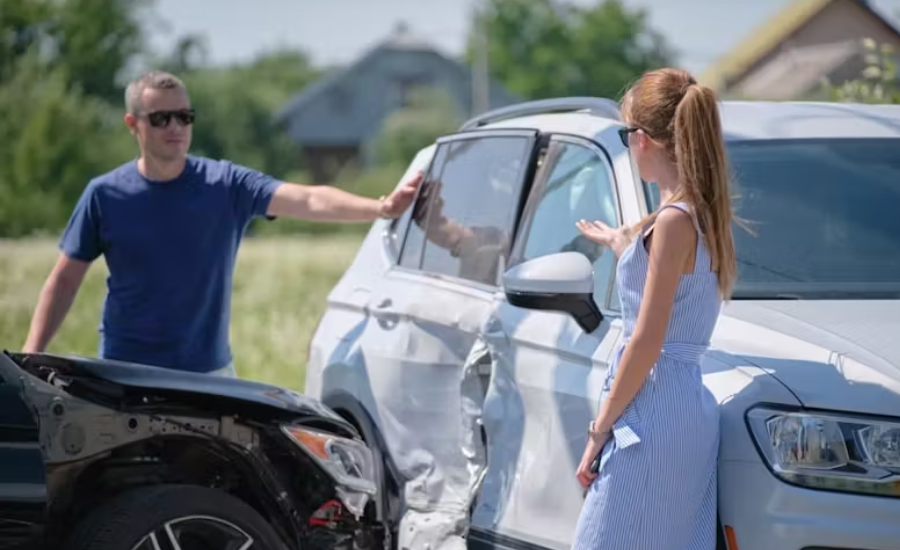Car accidents can be overwhelming and stressful, especially in a state like Florida, where traffic laws and insurance rules are unique. If you find yourself in a collision, knowing the right steps to take can make a huge difference in protecting your legal rights and ensuring you get the compensation you deserve. Whether you’re dealing with minor injuries or significant damages, taking immediate action is crucial.
One of the best ways to navigate the aftermath of an accident is by seeking legal advice from an experienced attorney. Jared Spingarn is a well-known personal injury lawyer in Florida who can help you understand your rights and fight for the compensation you deserve.
Let’s dive into the five key steps you should take after a Florida car accident to protect yourself legally and financially.
1. Prioritize Safety and Seek Medical Attention
The first and most important step after a car accident is ensuring your safety and the safety of others involved. If possible, move your vehicle to a safe location to avoid blocking traffic. Turn on your hazard lights to alert other drivers.
Even if you feel fine, seek medical attention immediately. Florida law requires accident victims to seek medical treatment within 14 days to be eligible for Personal Injury Protection (PIP) benefits. Delaying medical care can weaken your case and give insurance companies a reason to deny your claim.
2. Call Law Enforcement and File a Report
In Florida, you are legally required to report an accident if it results in injuries, fatalities, or property damage exceeding $500. Calling the police ensures that an official accident report is created, which serves as crucial evidence in your case.
When speaking with law enforcement:
- Stick to the facts.
- Avoid admitting fault.
- Request a copy of the police report once it is available.
Having a police report can be valuable when dealing with insurance companies and legal proceedings.
3. Gather Evidence at the Scene
If you’re physically able, collect as much evidence as possible at the accident scene. This information can be crucial in proving liability and strengthening your claim.
Here’s what you should document:
Photos and Videos: Capture images of the accident scene, vehicle damage, skid marks, road conditions, and any visible injuries.
Witness Statements: If there are witnesses, get their names and contact information.
Driver Information: Exchange details with the other driver(s), including names, phone numbers, insurance details, and vehicle information.
Having solid evidence can help your attorney build a strong case on your behalf.
4. Notify Your Insurance Company but Be Cautious
Under Florida’s no-fault insurance system, you must report the accident to your insurance company as soon as possible. However, be careful about what you say.
Insurance adjusters might try to downplay your injuries or get you to admit fault. When speaking with your insurance company:
- Stick to the facts.
- Do not speculate about injuries.
- Avoid recorded statements without consulting your lawyer.
If you feel unsure about dealing with insurers, having a personal injury attorney like Jared Spingarn can protect you from tactics that may harm your claim.
5. Consult an Experienced Florida Car Accident Attorney
Navigating Florida’s car accident laws can be complex, especially when dealing with medical bills, lost wages, and insurance negotiations. Consulting a skilled personal injury attorney is one of the best ways to protect your rights.
An attorney can:
- Investigate your accident and gather strong evidence.
- Handle communications with insurance companies.
- Negotiate for a fair settlement.
- Represent you in court if necessary.
Hiring Jared Spingarn can make a significant difference in the outcome of your case. His expertise in Florida car accident claims can help you receive the compensation you deserve.
FAQs About Florida Car Accidents
1. How long do I have to file a car accident lawsuit in Florida?
Florida has a statute of limitations for car accident claims. As of 2023, you have two years from the date of the accident to file a personal injury lawsuit.
2. What should I do if the other driver is uninsured?
If the at-fault driver doesn’t have insurance, you may be able to file a claim under your Uninsured/Underinsured Motorist (UM/UIM) coverage, if you have it.
3. What if I was partially at fault for the accident?
Florida follows a modified comparative negligence rule, meaning you can still recover damages if you were less than 50% at fault. However, your compensation will be reduced by your percentage of fault.
4. Can I recover damages beyond PIP coverage?
Yes, if your injuries are severe, you can file a claim against the at-fault driver for additional damages, including pain and suffering.
5. How much does it cost to hire a car accident lawyer in Florida?
Most personal injury attorneys, including Jared Spingarn, work on a contingency fee basis, meaning you pay nothing upfront. They only get paid if they win your case.
Conclusion
A Florida car accident can be life-altering, but taking the right steps can help protect your rights and ensure you receive the compensation you deserve. From seeking medical care and filing a police report to gathering evidence and consulting an attorney, each step plays a crucial role in your case.
If you’ve been injured in a Florida car accident, seeking legal guidance from an experienced lawyer like Jared Spingarn can make a huge difference in the outcome of your case. Don’t let insurance companies take advantage of you—get the legal support you need to fight for your rights.
Stay In Touch For More Updates And Alerts: Bangkok Tribune



